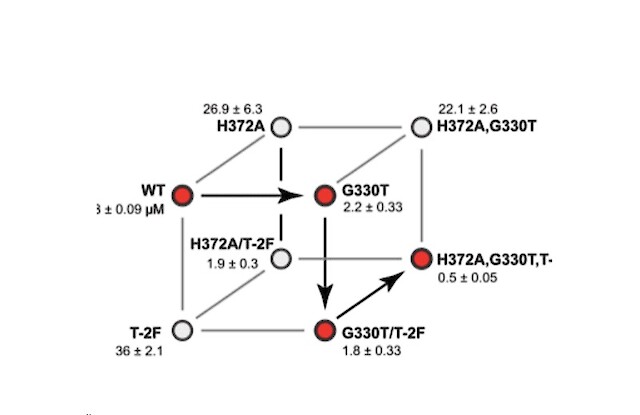Origins of allostery and evolvability
Cell 2016

How do proteins adapt to new functions as conditions of selection change? Using new techniques for massive-scale mutagenesis, we describe a critical role for a special class of intermediate mutations – termed “conditionally neutral” (CN). CN mutations have the unique property of opening up new functions while retaining the existing function, and can therefore pre-exist in populations as standing genetic variation before the new functions are required. This can facilitate evolution by temporally decorrelating environmental fluctuations (that change selection pressures) from the generation of favorable mutations. Structurally, we find that all CN mutations are allosteric; thus, in addition to traditional roles in mediating signaling and regulation, allostery may also mediate evolvability in proteins. A natural implication is the perhaps surprising idea that the origin of allostery might lie not in function, but simply in the capacity of proteins to evolve.